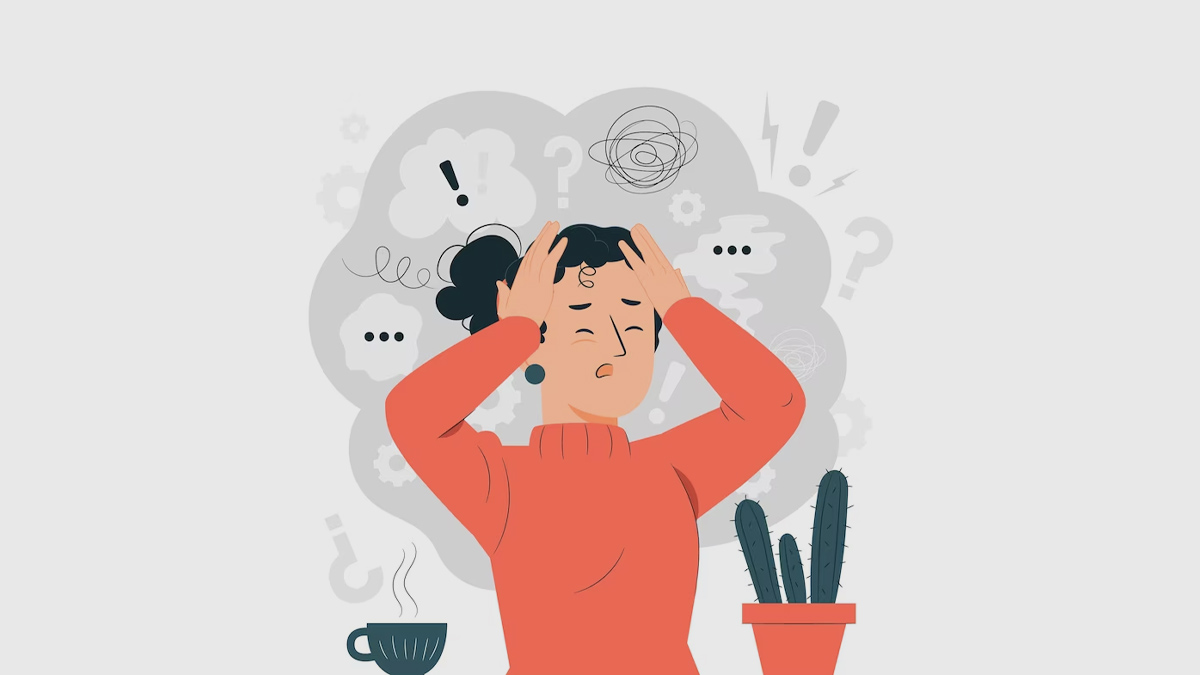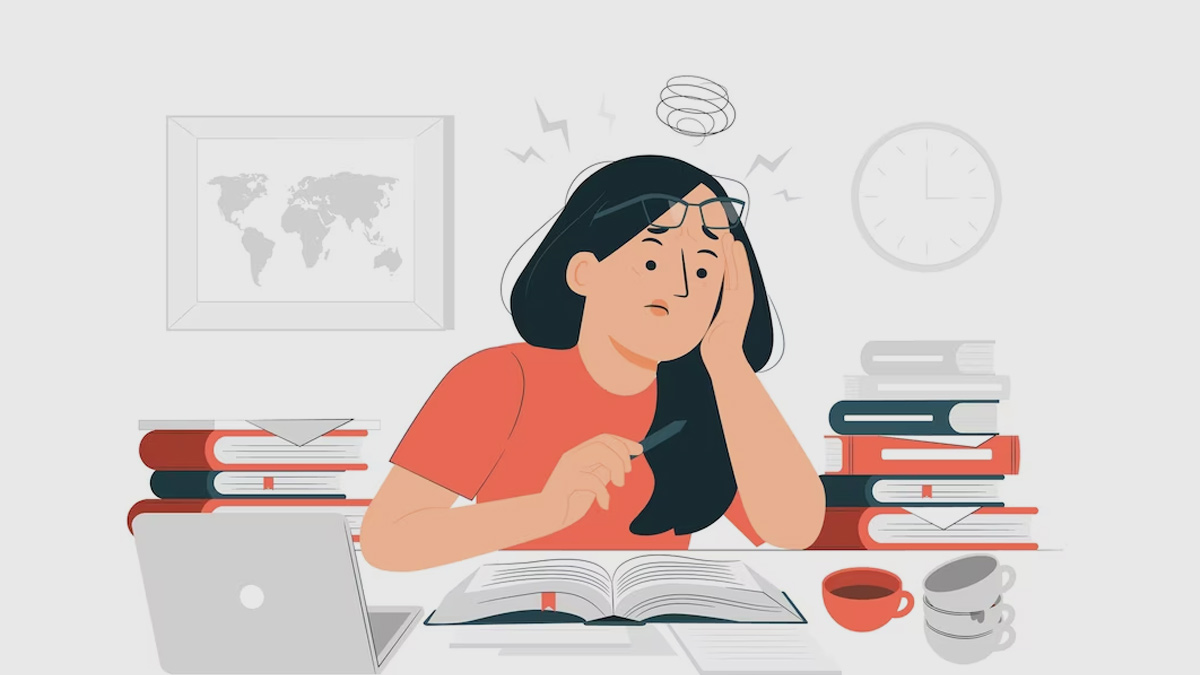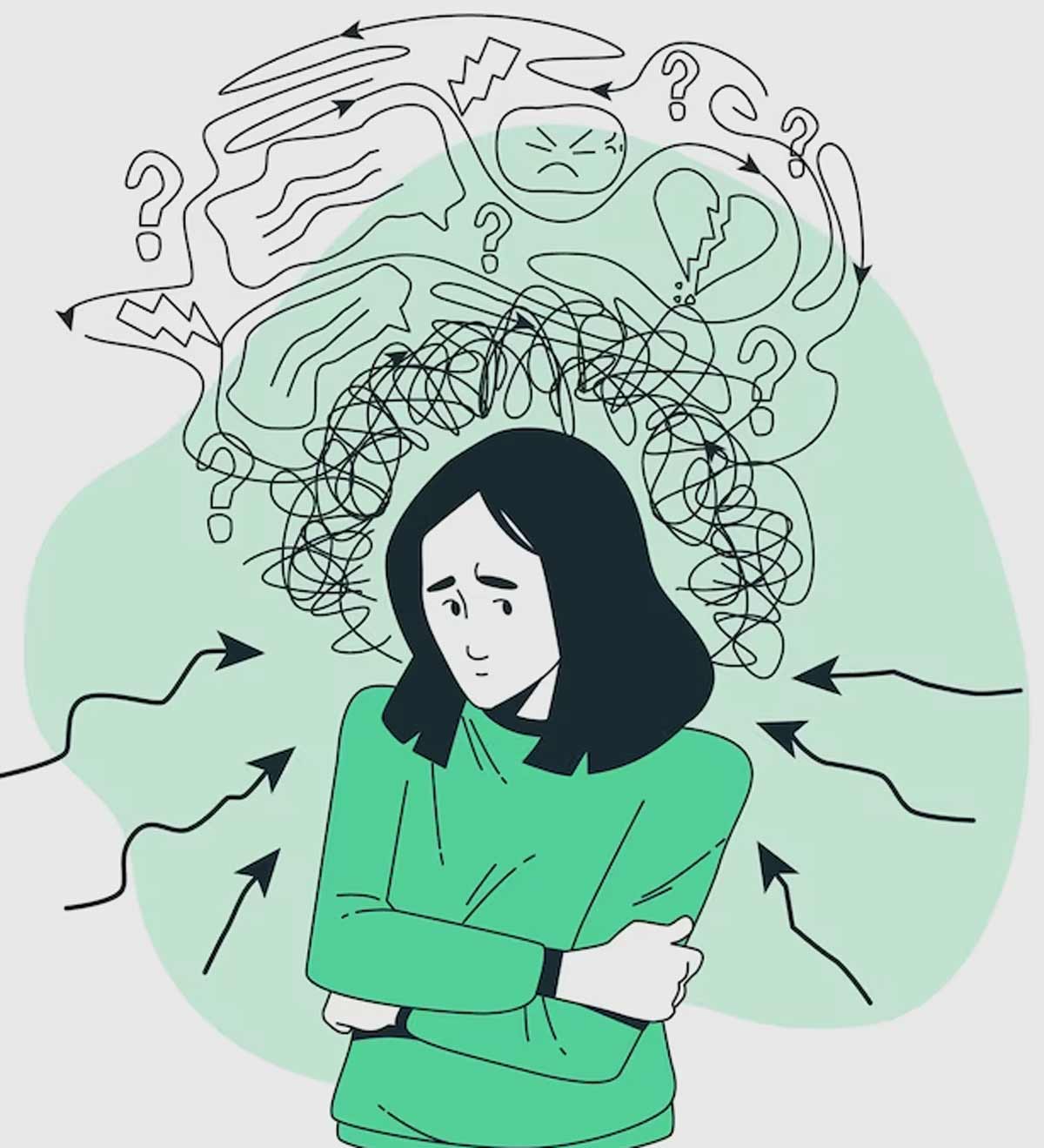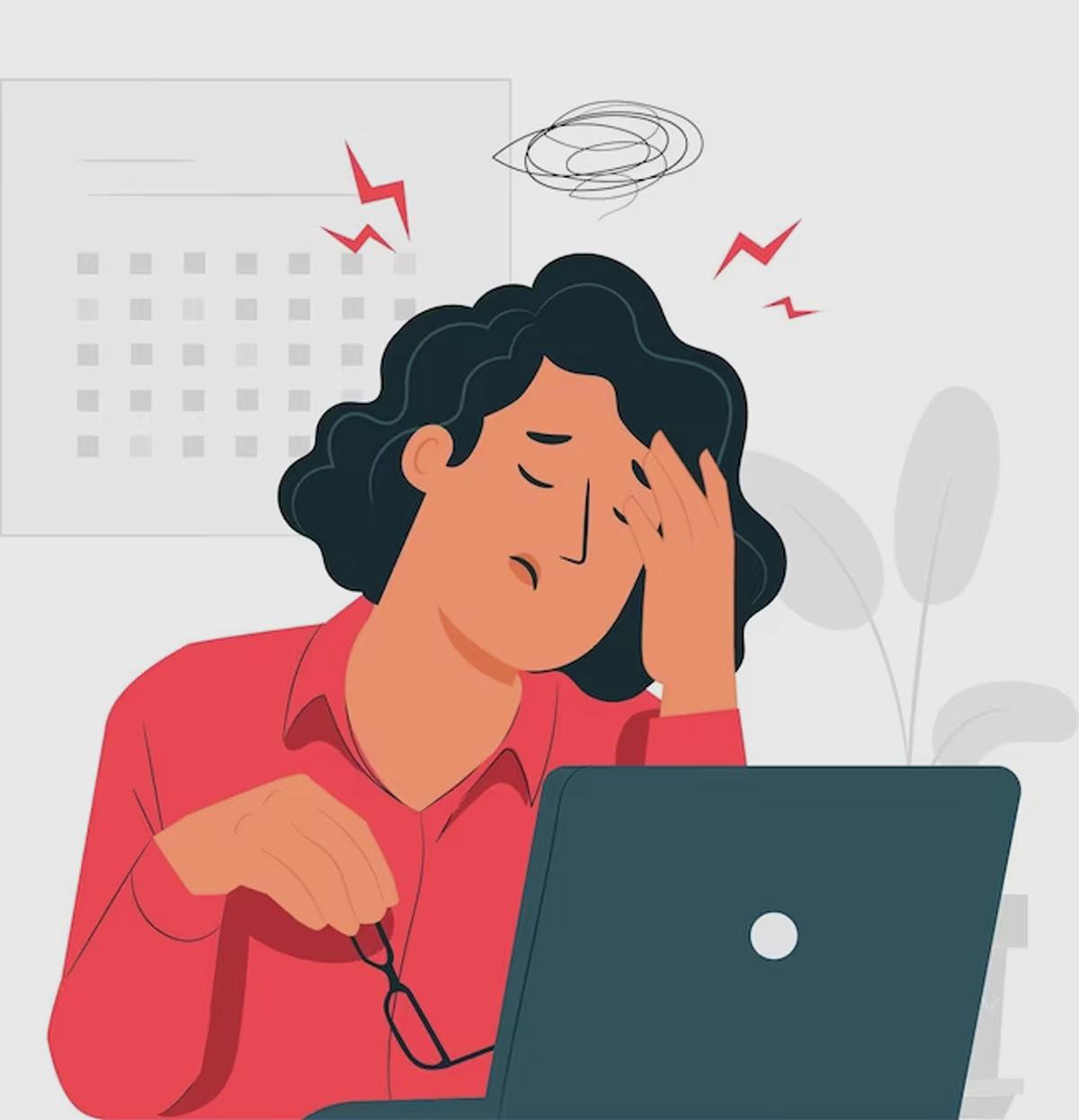
Stress is one of the common ailments people struggle with these days. It can be caused by tension in the office or tiffs at home. However, it is crucial to manage stress, or it can severely compromise our well-being.
To understand how stress can affect our mental health, we spoke to Dr Pratibha Singhal, Director and Senior Consultant, Obstetrics and Gynaecology, Cloudnine Group of Hospitals, Noida. When anxious or tense, the body releases adrenaline into the blood which leads to a fight-or-flight reaction. This awakens the body and gets it ready to respond or react to a perceived or real danger.

Dr Singhal said when a person gets stressed, their face will appear flushed, and their hands will get sweaty. These are normal responses to a situation that makes us anxious or stressed. It is a result of the release of adrenaline.
However, if a person cannot manage stress, it can have a negative impact on the body. The condition is called chronic stress.
It can lead to physical changes in the body, including,

When a couple or person is not able to conceive in a certain amount of time, they become frustrated, anxious and stressed. For some people, the journey to get pregnant can be a roller coaster ride.
Dr Singhal said that couples come running to the hospital and frequently spend large amounts of money to undergo procedures after procedures. Many of them still do not get results.
“This often puts couples under tremendous stress,” Dr Singhal added. They get frustrated so much that they just want to give, and doctors end up counselling them regarding stress management. They have to assure the anxious couple to take it easy and continue with treatments.
Dr Singhal pointed out, “Studies have shown that patients suffering from fertility issues or infertility have varying degrees of depression.” However, not many realise that stress can be a factor for someone not being able to conceive. It affects the quality of eggs and sperm. Stress can result in the failure of fertilisation and the fertility process. Dr Singhal has seen many couples, who have had their first child via IVF (In Vitro Fertilisation), become pregnant naturally. They thought they could never have a child if it wasn’t for IVF. Therefore, after their first baby, they often skip contraception and conceive again.
The doctor explained that it could be because of two reasons. Either they had a tubal blockage because of which conceiving naturally was hard or they underwent IVF when stressed and have a baby now. In the second case, the element of stress was resolved, which has been shown to help couples conceive naturally.
Doctors often ask couples to opt for exercises that help with stress management. Some exercises lead to muscle relaxation and reduced heart rate and anxiety.
Don't Miss: Here's How Pregnancy Affects A Woman's Sense Of Taste And Smell
Dr Singhal suggested,

Postpartum stress or postpartum blues happen after a woman gives birth. Dr Singhal said that a number of people experience powerful emotions. “They are excited and joyous or sometimes become tearful,” she added. These are referred to as mood swings. Women are often seen experiencing spells of sleeplessness and crying anxiety.
Postpartum blues happen two or three days after the delivery. They can last up to two weeks. However, if the mother going through stress does not receive counselling, it can turn into postpartum depression, which can last even longer.
Postpartum depression can also affect fathers. Those who are about to welcome a baby for the first time and have a family history of depression can suffer from it.
They would,
Dr Singhal said that low confidence among new mothers could also be the reason for postpartum stress. She might overthink on
When a family welcomes a baby, everyone has pieces of advice to offer the mother. Sometimes there are tiffs among members. All of this piles up on the new mother, and she can suffer from an anxiety disorder.
This can affect the baby adversely too. If the mother is not happy, she will not be able to bond with her child, breastfeed, look after her health and sleep at night. It can make her crawl into a shell where she would cut off the entire world.
Don't Miss: Is Your Toddler Suffering Anxiety? How To Know When Kid Can’t Yet Speak
Dr Singhal suggested seeking counselling to help the new mother overcome these issues and ensure the creation of a stress-free environment. Stress can be managed via various means. You just have to figure out what works best for you. Stay tuned to HerZindagi for more updates.
Also watch this video
Herzindagi video
Our aim is to provide accurate, safe and expert verified information through our articles and social media handles. The remedies, advice and tips mentioned here are for general information only. Please consult your expert before trying any kind of health, beauty, life hacks or astrology related tips. For any feedback or complaint, contact us at [email protected].